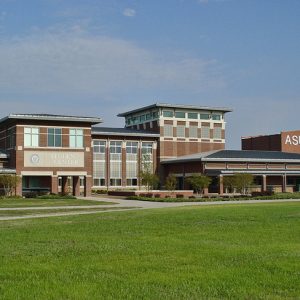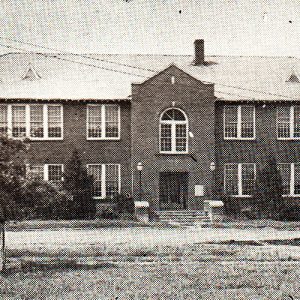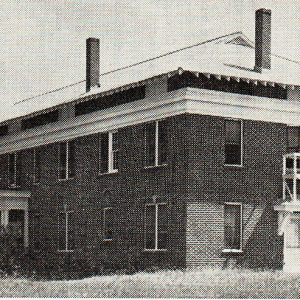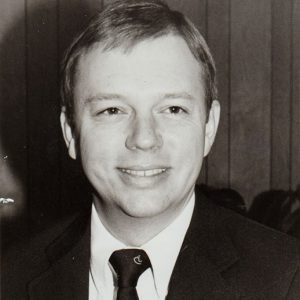calsfoundation@cals.org
Arkansas State University–Beebe (ASU–Beebe)
aka: ASU–Beebe
Arkansas State University–Beebe (ASU–Beebe) is the oldest two-year institution of higher learning in the state. Located in east-central Arkansas along Highway 67/167 in Beebe (White County), it serves students from the Delta, the Ozark foothills, and the Little Rock (Pulaski County) metropolitan area. ASU–Beebe’s chief mission is to provide recent high school graduates and non-traditional students opportunities to obtain skills and training useful for immediate employment, and to take advanced coursework leading to an associate’s degree or transfer credit to a four-year institution. It was one of the first two-year schools to become a branch within a state university system, the Arkansas State University System. Except for Arkansas State University–Newport (ASU-Newport), ASU–Beebe remains the only two-year institution in Arkansas with a faculty that is afforded rank and tenure. Although primarily attended by commuters, the school has on-campus student residence halls.
ASU–Beebe was founded in 1927 as the Junior Agricultural School of Central Arkansas. State Representative William H. Abington of Beebe was the key sponsor of the legislation creating the school—legislation designed specifically to set up such a school in Beebe, the only town that met the act’s criteria and that made a bid for the institution. The first president of this independent Junior Agricultural School of Central Arkansas was Abington’s brother, Dr. Eugene Abington, and the school was situated on land donated by the Abington family.
In its early years, the school was joined with Beebe public schools, becoming the Junior Agricultural College of Central Arkansas in 1931 with the addition of a junior college program of study. Through the Depression, the college and high school shared facilities and faculty, but the death of W. H. Abington in 1951 made the college’s future uncertain. President Boyd Johnson worked hard to maintain state financial support, and merger with a four-year state institution was at this time first considered.
In 1955, President B. E. Whitmore successfully negotiated the association of the Beebe campus with Arkansas State College (ASC) in Jonesboro (Craighead County), now Arkansas State University (ASU). Arkansas State College–Beebe Branch operated under the authority of the president and board of trustees of ASC but ran its programs independently. J. Ernest Howell served as dean of the college from 1956 to 1964, followed by Walter England from 1964 to 1977. England oversaw peaceful integration in 1965 and the transition to Arkansas State University–Beebe Branch in 1967 with a name change at the flagship Jonesboro campus. William Echols assumed the title of chancellor when he succeeded England. William Owen Jr. held the office from 1981 to his death in 1994, and Eugene McKay held the position until 2015, when Karla Fisher was named the new chancellor. Fisher resigned in August 2017. In 2001, the Arkansas General Assembly removed “branch” from the ASU–Beebe system’s official name.
During the period from the 1980s to the present, ASU–Beebe’s curriculum expanded, and new degree and certificate programs were introduced. ASU–Beebe now offers associate degrees in numerous areas of concentration, along with a number of technical certificates, certificates of proficiency, and a certificate in general education. In 1985, the Arkansas State Technical Institute (ASTI) was established by the state legislature to grant the associate of applied science degree at ASU–Beebe. A successful distance-learning program, in conjunction with general campus modernization, began in the late 1990s. ASU–Beebe has recently become the only two-year school to offer a veterinary technician program, which was first offered in 2007. Agreements with various four-year institutions have made for ease of transfer, and Jonesboro baccalaureate and master’s programs in agribusiness, criminology, business administration, early childhood education, and other disciplines are available on the Beebe campus. The agriculture program includes a working farm and a John Deere certificate program.
Beginning in 1965, ASU–Beebe has offered courses through its center on the Little Rock Air Force Base; through the 1990s, it also offered courses at a site in Newport (Jackson County), which has since become a stand-alone branch of ASU. In 1999, the Arkansas General Assembly created Arkansas State University–Heber Springs, a branch of ASU–Beebe, to serve Cleburne County. Foothills Technical Institute in Searcy (White County) formally merged with ASU–Beebe in 2003 to become Arkansas State University–Searcy, offering occupational training in a variety of technical fields. In 2015, at the instigation of the Arkansas State University System, ASU–Beebe established its own logo and school colors, choosing blue and gray with red accents.
As of September 2015, ASU–Beebe has more than 100 full-time faculty on its campuses. ASU–Beebe’s educational programs are accredited by the Higher Learning Commission of the North Central Association of Colleges and Schools. The school offers the only agricultural equipment technology, pharmacy technician, and veterinary technology programs in the state. In 2022, fall enrollment was 2,928.
For additional information:
Arkansas State University–Beebe. http://www.asub.edu (accessed September 12, 2024).
McKay, Eugene. Interview with Walter England. February 10, 1982, Abington Library. Arkansas State University–Beebe, Beebe, Arkansas.
———. Interview with William Owen. February 3, 1982. Abington Library. Arkansas State University–Beebe, Beebe, Arkansas.
Spencer, Angela. “Golden Anniversary: ASU Beebe’s LRAFB Campus Celebrates 50 Years.” Arkansas Democrat-Gazette, Three Rivers Edition, October 15, 2015, pp. 1S, 3S.
James Brent
Arkansas State University–Beebe










Comments
No comments on this entry yet.